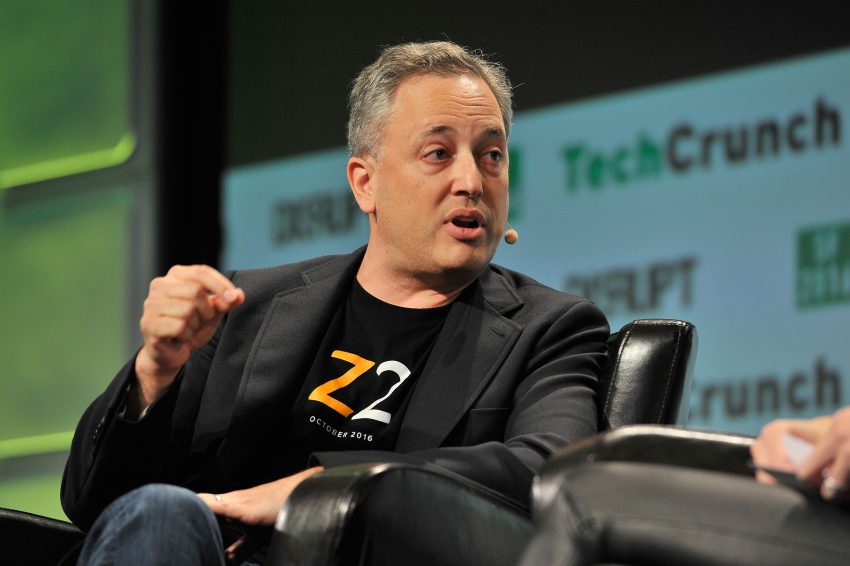The Ethical Dilemma of David Sacks’ Dual Roles
When Vultron, an AI startup, announced its $22 million funding round earlier this week, one key investor stood out: Craft Ventures. This firm is co-founded by David Sacks, a White House AI adviser. The revelation has sparked intense debate about potential conflicts of interest within the Trump administration.
Sacks serves as both an AI and crypto czar while maintaining his role at Craft Ventures. Critics argue that this arrangement blurs the lines between public duty and private gain, creating a new model of government service where ethical boundaries are unclear.
Sacks has obtained two ethics waivers, allowing him to shape federal policy while holding financial stakes in the industries he oversees. The first waiver, from March, covered his crypto investments, and the second, issued in June, addressed his AI holdings. Together, these waivers have enabled what many consider an unprecedented situation.
Kathleen Clark, a law professor specializing in government ethics, called the arrangement “graft.” She criticized the waiver for focusing on percentages of Sacks’ total assets rather than actual dollar amounts. For example, Sacks’ stake in Craft’s portfolio was less than 3.8% of his total assets when the waiver was signed. However, Clark emphasized that even a small percentage can represent significant wealth for someone like Sacks.
Clark also pointed out that the waiver fails to consider potential upside. Federal regulations require examining not just current value but also potential profit or loss. For a venture capitalist like Sacks, this means that even if his shares are currently a small portion of his assets, they could grow significantly over time.
Craft Ventures has not responded to multiple requests for comment on this matter.
The Vultron Investment and Its Implications
The timing of Vultron’s announcement highlights the complexity of Sacks’ dual roles. Vultron creates AI tools for federal contractors, helping them win government contracts more efficiently. The company claims to reduce proposal timelines from weeks to days and reports that one Fortune 500 client saves over 20 hours per user each week on federal contracting work.
A source close to the company stated that Craft Ventures’ investment predates Sacks’ government appointment. However, the timing raises concerns: the nation’s AI czar has a financial stake in a company that profits from helping businesses win the very federal contracts his policies will influence.
Senator Elizabeth Warren has been vocal in her criticism of these arrangements. In a May letter to the Office of Government Ethics, she questioned Sacks’ crypto waiver, noting that he was simultaneously hosting a $1.5 million-a-head dinner for crypto industry players while shaping federal crypto policy.
Warren wrote that normally, federal law would prohibit such an explicit conflict of interest. Sacks has dismissed these concerns, accusing Warren of having a “pathological hatred” for the crypto community. He also claimed to have sold a fortune in crypto before joining the White House to avoid any appearance of a conflict.
Supporters and Divestments
Supporters of Sacks highlight the sacrifices he has made for government service. According to his waivers, he and Craft Ventures have divested over $200 million in digital assets, with at least $85 million directly attributable to him. He has sold stakes in fast-growing companies, including his position in Elon Musk’s xAI, and initiated the sale of interests in approximately 90 venture capital funds, including Sequoia funds.
A source close to Sacks emphasizes these divestments, noting that because of his government role, Craft Ventures must now run every AI and crypto-related deal past the White House ethics committee. This oversight makes it implausible to invest in feeder funds and smaller deals due to the volume of work involved.
Clark argues that the underlying ethical framework remains flawed. She believes the waivers are designed to provide legal cover rather than address ethical concerns. “This is whitewashing,” she said. Complicating matters further, Sacks works as a government employee only 130 days per year, effectively every other week, while maintaining his commercial activities during off periods.
The Future of Sacks’ Role
Some observers wonder whether Sacks, a self-made billionaire, will declare victory and exit government service altogether. With the GENIUS Act now law, he may consider his primary mission accomplished: bringing cryptocurrency from the fringes to center stage.
However, this will likely take time. Sacks recently detailed his immediate priorities following the act’s passage, emphasizing the development of regulatory frameworks in three key areas, including defining market structure categories, expanding stablecoin regulations, and evaluating a potential national digital asset stockpile.
Critics concerned about conflicts of interest argue the precedent has been set. The rapid passage of crypto-friendly legislation, combined with ongoing investments in AI companies serving the federal government, suggests that Sacks and others with similar arrangements have positioned themselves and their wider orbit to benefit from their government access.
Whether this represents a new normal for Silicon Valley relations with Washington, or instead an aberration that future administrations will reverse, remains to be seen. What’s clear is that traditional ethics frameworks may be inadequate for an era when venture capitalists can maintain their investment activities while simultaneously shaping the policies that determine those investments’ future value.
For now, the arrangement continues, protected by carefully crafted waivers that ethics experts have questioned but find legally unassailable. As Clark puts it: “No one will be able to prosecute him.”
